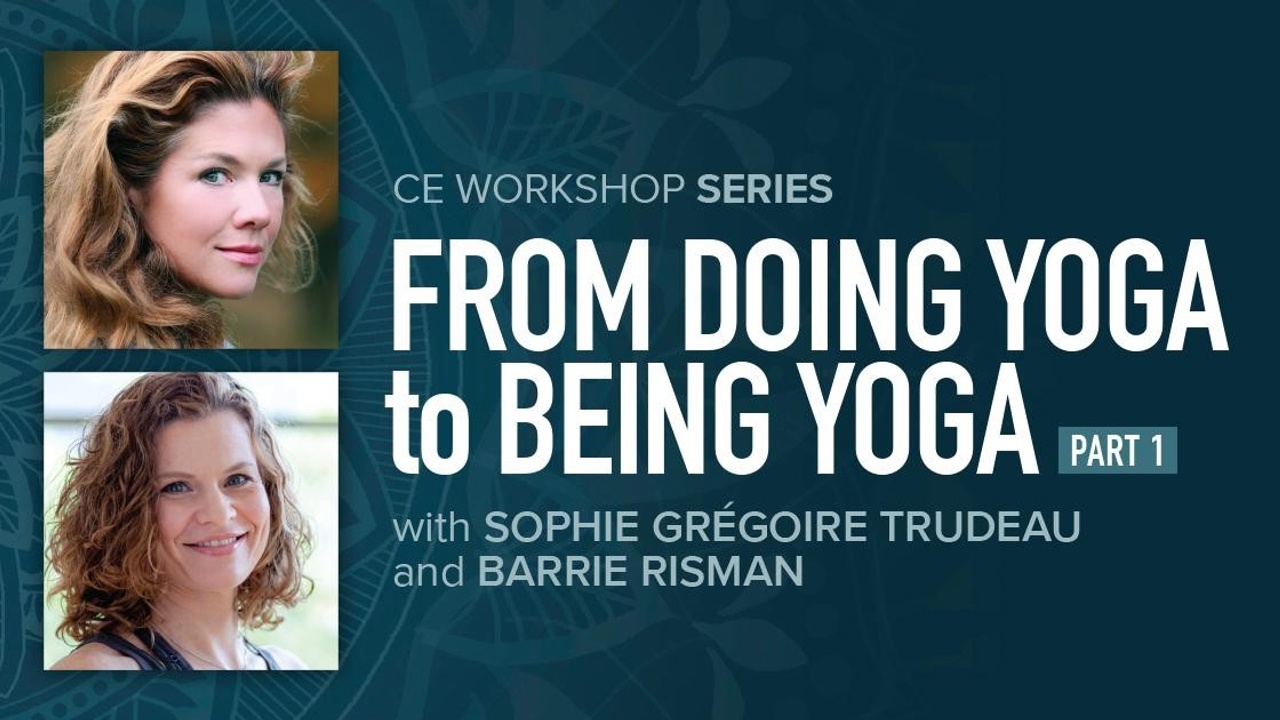From Doing Yoga to Being Yoga
Jun 02, 2021
Have you ever heard something in yoga class that moved you deeply? That resonated with you as true on an intuitive level? Maybe even brought a tear to your eye? For me, that happened when my first teacher said to our class:
“Yoga is a path that takes all of us with it, no part gets left behind.”
These words struck a profound chord within me because it was at that moment that I first understood that yoga could be more than a class I took once or twice a week to exercise my body and reset after a stressful day at work. Hearing those words, I grasped that yoga was a holistic discipline, a set of practices that could address the whole of my being and that held the possibility of growth and expansive, positive shift.
This was back in 1993. I was in my early 20’s at the time, living in Manhattan and working at an office job. I didn’t know what I wanted to do with my future at the time, but I knew that I was seeking something different than the corporate lifestyle many of my peers were living.
Like many of us, I was raised in a culture where a meaningful life was often equated with worldly achievement and material wealth. But as a young adult, I started to question this idea. Many of the people I knew who had achieved success seemed far from satisfied. I sensed that underneath their outer success was an inner emptiness and feeling of lack.
I had read enough books on Eastern philosophy to know that these traditions taught, first and foremost, that the only source of true and lasting contentment lies within oneself. When I heard the words of my teacher, I understood that yoga was a path toward discovering fulfillment that had nothing to do with my status or accomplishments in the world. This propelled me to dive deeply into the practice and teachings of the yoga tradition. And what I discovered was way of being with myself and living in the world with greater purpose and more joy.
Of course, there is absolutely nothing wrong with simply “doing yoga.” There are tremendous physical and emotional benefits to be gained by showing up and doing the practice once or twice a week. Over time, though, we may become more curious as to how yoga actually works, why we feel better after practice, and how we can use yoga to help us deal more effectively with challenges in our lives. We may also, as in my case, feel a longing for the inner transformation and spiritual growth that yoga can offer us. I believe that this is where philosophy and a reflective or contemplative practice —“being yoga” instead of just “doing yoga”—comes in.
The shift from “doing yoga” to “being yoga” is grounded not only in what we do. Ultimately, it’s about making an effort to integrate what we learn in practice into the rest of our lives. In my case, it was my meditation practice and contemplative studies, both on my own and with teachers, that expanded the role yoga played in my life. Over time, as regular meditation practice, reading and reflecting on yogic teachings and discussing them with fellow students, and taking time to be in silence and in nature became part of my daily life, the uncertainty I felt about my future was gradually replaced with an underlying sense of self-acceptance and contentment. Since then, I’ve come to rely on these practices to gain perspective, remember the preciousness of life, and stay true to my values. They provide a refuge during difficult times, expand my capacity to experience joy, and help me process situations in my life through the lens of yogic principles.
In its traditional form, yoga is meant to shift who we are as human beings, our relationship with ourselves, and how we show up in the world. I believe that over time, a reflective yoga practice helps us to become kinder, more benevolent human beings. In this way, it helps us experience greater inner happiness and fulfillment, and also contributes to the betterment of our world.
Yoga helps me fulfill the roles and responsibilities of my life with greater enthusiasm, clarity, and perspective. Practice helps me make better decisions as a parent, stay centered when unexpected challenges arise, and be a reliable, supportive presence for the people in my life.
In her foreword to Evolving Your Yoga: Ten Principles for Enlightened Practice, Sophie Grégoire Trudeau wrote:
“With body awareness, mental focus, breathing exercises, and some fun (yes, yoga can be laughter-inducing!), yoga is an accessible, adaptable, and transformative practice. It’s possible to live a life with less guilt, less anxiety, and less frustration – leaving space for more self-respect, peace, and self-love.”
This has been my experience. Still today, more than 25 years after hearing my teacher’s words, I find myself delighted by and grateful for the possibility of yoga as a lifelong, ever-evolving path of toward more purposeful living.
Many of you may know Sophie Grégoire Trudeau as the wife of our Canadian Prime Minister Justin Trudeau. But did you know she’s also a devoted yoga practitioner and certified teacher of adults and children? She’ll be joining me next week for a new online continuing education series for Yoga Alliance on the very topic I’ve discussed in this post, which is called “From Doing Yoga to Being Yoga.” These sessions are free and open to everyone! I hope you can join us. Sign up for Part 1 right here.
